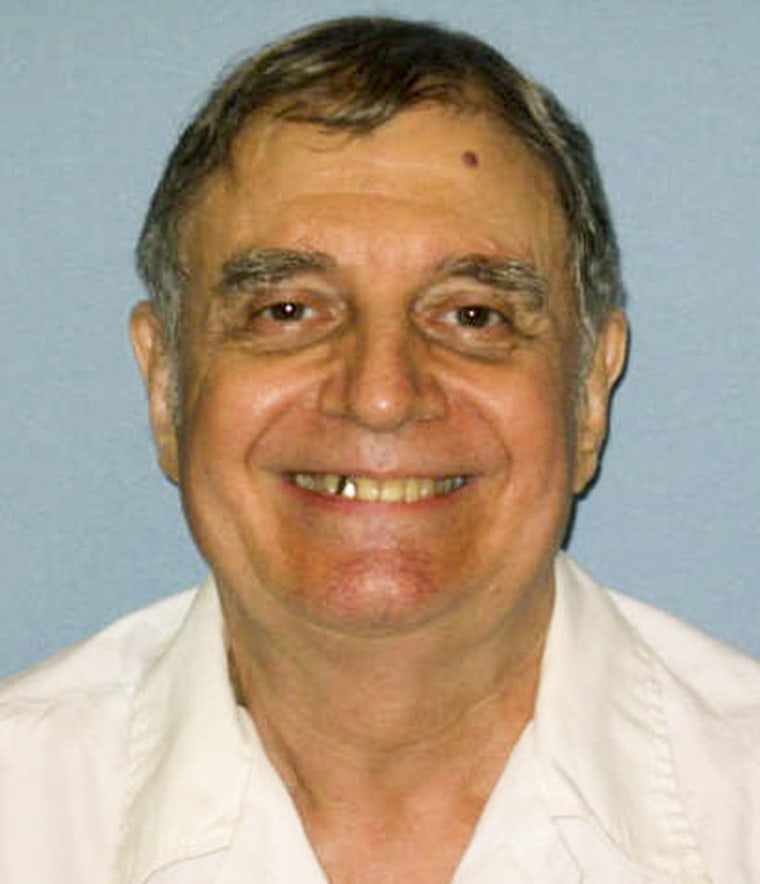An Alabama prisoner scheduled for execution Thursday evening won a temporary delay from the U.S. Supreme Court.
Tommy Arthur had petitioned the high court to stop the execution on the grounds that his sentencing violated recent rulings by the justices. He also challenged the state's lethal injection protocol.
Hours after he was supposed to be put to death, a divided Supreme Court granted the stay because four of the justices wanted more time to consider Arthur's arguments. The Chief Justice said he disagreed but granted the stay as a courtesy.
"We are greatly relieved by the Supreme Court’s decision granting a stay and now hope for the opportunity to present the merits of Mr. Arthur’s claims to the Court," Arthur's lawyer, Suhana Han, said in a statement.
Arthur, who is now 74, was serving a life sentence for murdering his sister-in-law when he was charged in 1982 with fatally shooting Troy Wicker, the husband of a woman with whom he was having an affair while on work release.
His first two convictions were overturned, but he was found guilty a third time — and at his final sentencing in 1991, he asked the jury to give him death. He said he thought he would get better prison accommodations, more time to see family and more time to devote to his appeal.
"Arthur told the jury that he did not believe he would be executed," an appeals court noted in a decision this week. He has maintained his innocence during his three decades on death row.
The state has set seven execution dates for Arthur. He won reprieves six times, and his last appeal led to a halt in executions statewide.
In his latest bid to stay alive, he is relying on a Supreme Court decision in January that struck down part of Florida's death penalty in a case called Hurst v. Florida.

Florida's system required the trial judge and not the jury to make the critical findings necessary to impose capital punishment, putting it at odds with a string of Supreme Court rulings that said the jury cannot be limited to an advisory role.
Arthur's legal team is arguing that Alabama's system is essentially the same as Florida's and thus unconstitutional, as well.
His lawyers have also challenged Alabama's choice of chemicals for its three-drug lethal injection, claiming they would cause too painful a death.

